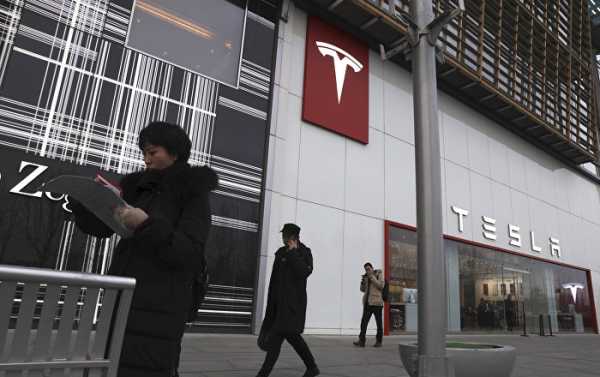
Construction for Tesla’s Gigafactory plant began in January, where the automaker aimed to produce its ‘budget-friendly’ Model 3 electric vehicles (EVs) for sale in China—the world’s largest auto market—despite the ongoing US trade war against Beijing, with local production helping to avoid the worst impacts of damaging tariffs.
Videos of US automaker Tesla’s first overseas plant in Shanghai have emerged, showing drone footage of the nearly constructed facility in Shanghai’s Lingang district.
The news comes as Beijing stated it would formally expand Shanghai’s Free-Trade Zone (FTZ) to include Lingang, home to the Gigafactory 3, where the US carmaker would receive fresh tax incentives and duty exemptions offered by China’s State Council, which were announced on 6 August, according to the blog Teslarati.
The expansion would make the FTZ the same size as Hong Kong, with Wang Shouwen, China’s vice-commerce minister, stating that it was an “important step” to show Beijing’s “clear stand for all-round opening up in the new era” as well as its role in “guiding the healthy development of economic globalisation”, Teslarati said.
Tesla CEO Elon Musk said in January that following the Gigafactory 3’s completion, he aimed to begin producing Model 3s at the end of 2019 and high-volume production targets in 2020, or roughly 500,000 cars per year. The Gigafactory will also produce cheaper Model 3s in Shanghai for the Chinese market, as strong competition exists amongst other EV carmakers such as Geely and BYD.
Chinese premier Li Keqiang also granted a residence pemit to Mr Musk in early January this year, allowing Musk to “make the factory in Shanghai a golden example”, the renewables tycoon told the State Council.
The American EV giant also received another windfall after the Netherlands Vehicles Authority (RDW) approved Model 3s for sale across Europe, helping Mr Musk to enter yet another crucial global market.
But in the company’s domestic market, the US, the carmaker was hit by a round of troubles following an FBI probe over allegations that Musk had defrauded shareholders via tweets made on the CEO’s Twitter feed. US president Donald Trump ending a federal subsidies programme for EVs totalling $7,500 in federal tax credits per vehicle, causing around 3,000 Model 3s to remain overstocked in the company’s US inventories despite being criticised for low production figures across US media. Compounding problems in the US market led to the troubled company cutting seven percent of its full-time staff in order to reduce costs, Tesla revealed in January.
Washington’s trade war on China escalated after President Trump halted issuing licences to Chinese telecoms giant Huawei in August, after Beijing refused to buy US agricultural goods. US authorities added a further 10 percent in tariffs on $300bn in Chinese goods and refused to allow some US businesses to conduct business with China after placing Huawei, ZTE and others on an entities list in May, unless the latter agreed to a fresh US-China trade deal with Washington.
Following his meeting with Chinese president Xi Jinping on the sidelines of the G20 summit in Osaka last summer, Trump allowed US companies to buy Huawei components not deemed a ‘threat to national security’. But US officials later passed a bill in late July aimed at protecting US markets from ‘foreign adversaries’ allegedly trying to undermine US national security by penetrating the country’s supply chains, according to senators Mike Crapo and Mark Warner.
Sourse: sputniknews.com






